Watercool Heatkiller IV CPU Water Block Review
The Watercool Heatkiller III has been around for a long long time. In fact it was an older design when we first tested it in our 2012 CPU water block roundup. It did respectably in that roundup given that it was an older design and as newer blocks launched it seemed to become less popular. Watercool is finally back with a new design that they’ve been working on for years now – the Heatkiller IV. While the name is hardly surprising let’s see if it lives up to the hype!
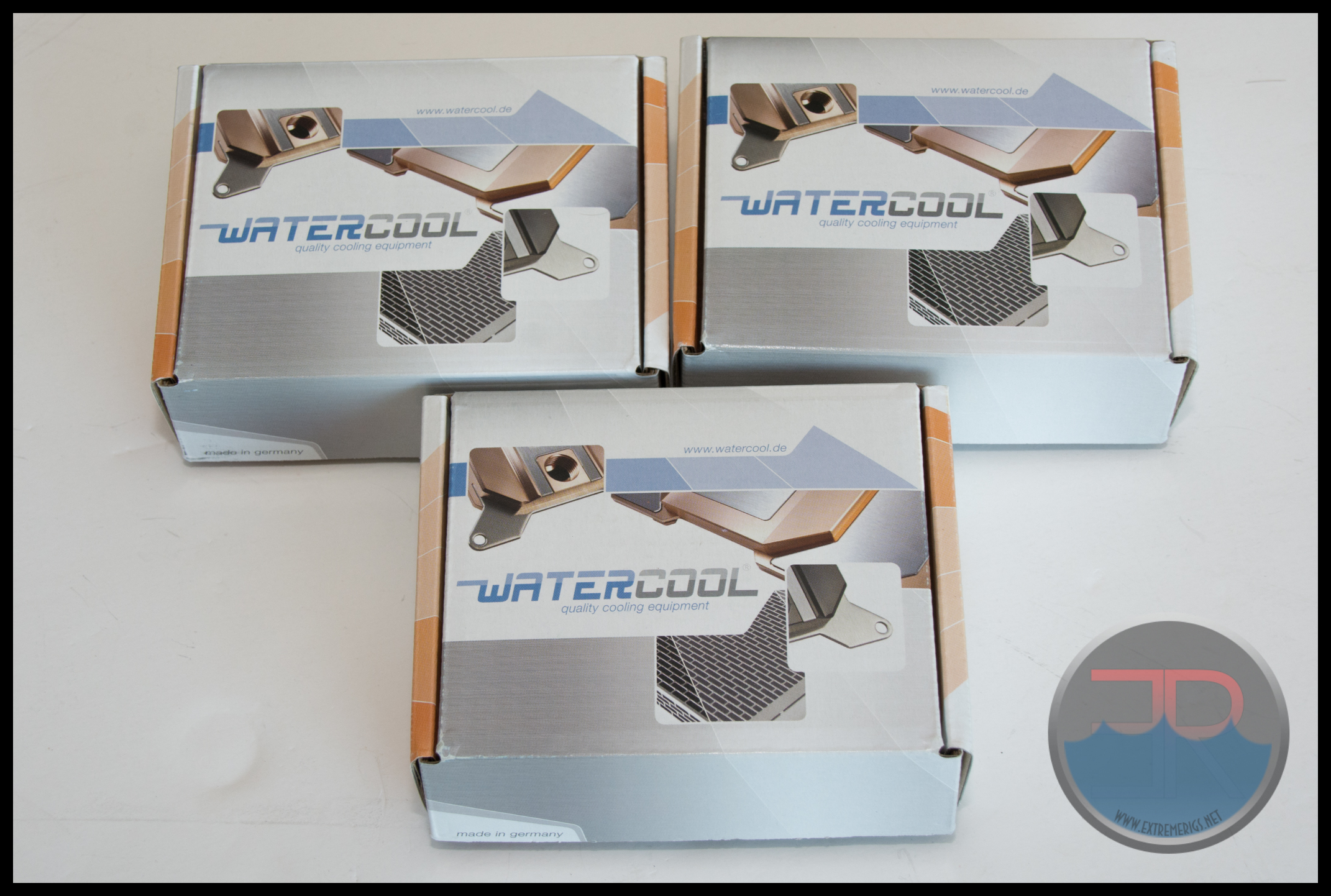 While we’d love to think that Watercool were so cocky we’d that they sent three versions of it the reality is somewhat different. The Heatkiller IV comes in Pro and Basic versions. While they look very similar, the internals are not and so that’s the real reason Watercool sent us a variety to test.
While we’d love to think that Watercool were so cocky we’d that they sent three versions of it the reality is somewhat different. The Heatkiller IV comes in Pro and Basic versions. While they look very similar, the internals are not and so that’s the real reason Watercool sent us a variety to test.
While we got to test two “Pro” versions and one “Basic” edition there are plenty of choices. The pro comes in Nickel Copper, “Copper An”, Pure Copper, Acrylic, Acrylic Clean and Acetal versions while the basic comes in Acetal and Acrylic only. “Copper An” stands for Anthracite Nickel Plated Copper – in other words a darker nickel.
All the packages came with the same box and instructions:
This one is the Pro Copper Anthracite:
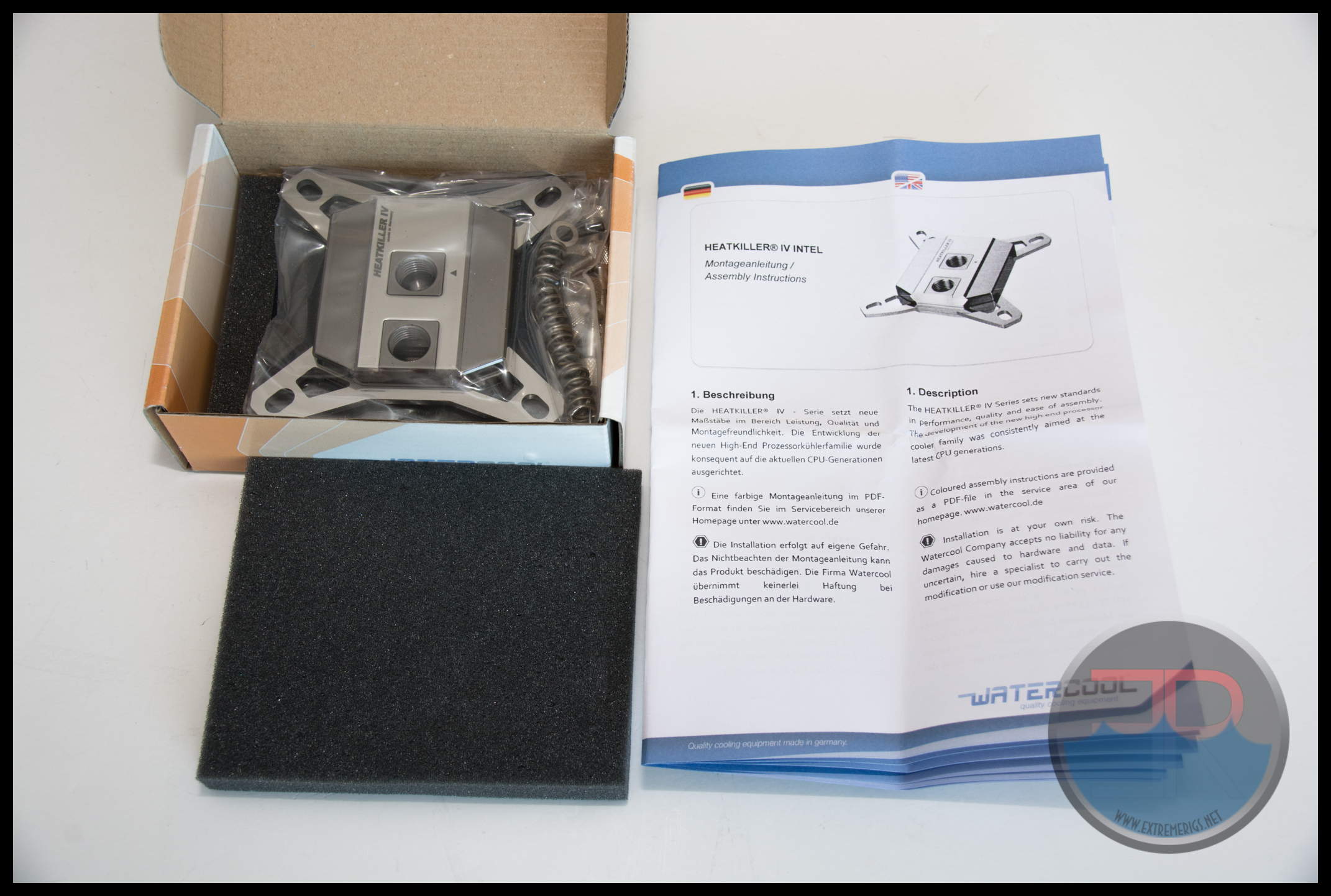 In addition to the bilingual and very thorough instructions accessories to mount the block were included for Intel sockets:
In addition to the bilingual and very thorough instructions accessories to mount the block were included for Intel sockets:
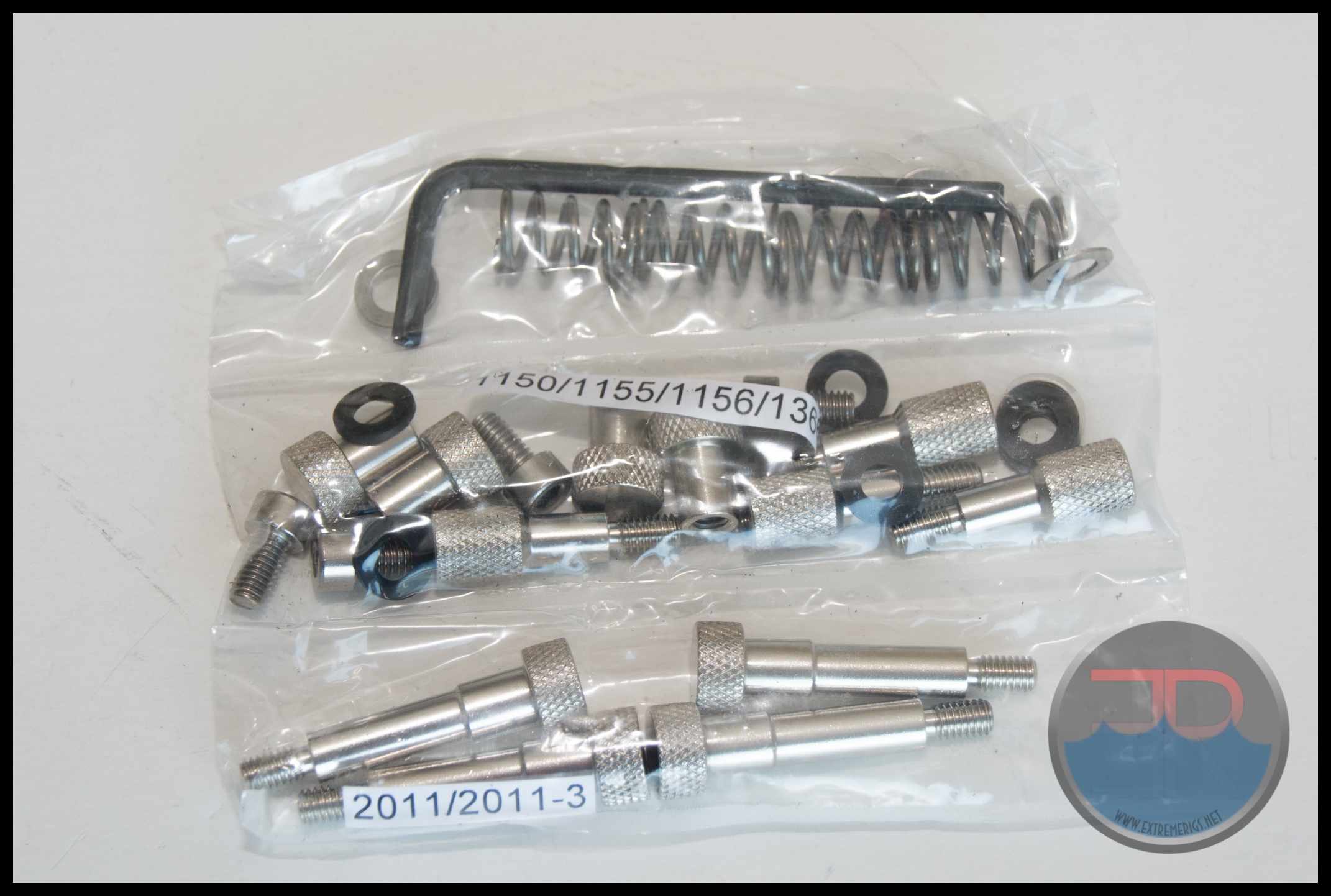 It should be noted that for 1150/1155/1156 sockets there is an optional backplate you can also buy in addition.
It should be noted that for 1150/1155/1156 sockets there is an optional backplate you can also buy in addition.
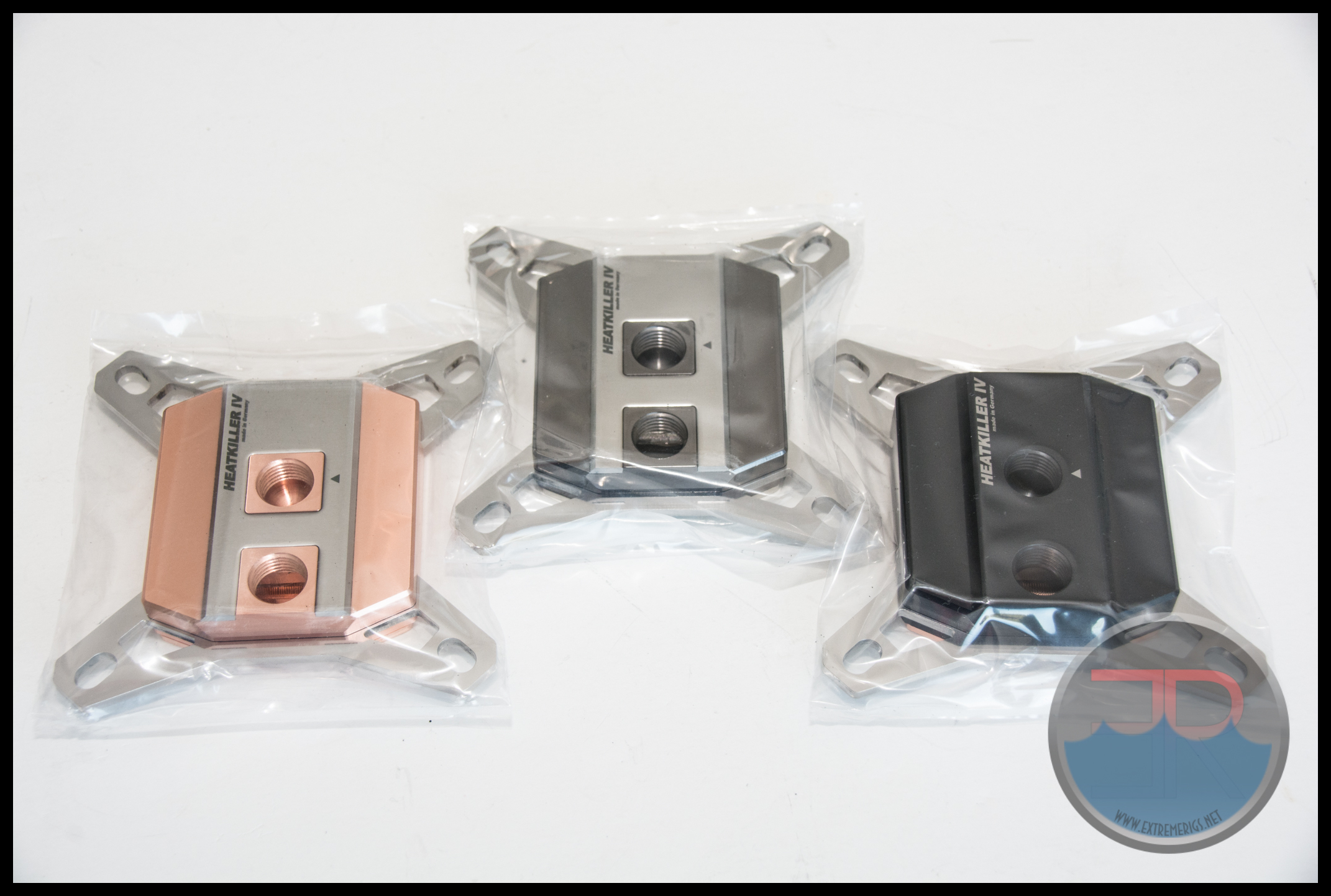 From left to right: Pro Pure Copper, Pro Copper Anthracite, Basic Acetal. In addition to the packaging materials and the plastic wrap the base of each block was protected also:
From left to right: Pro Pure Copper, Pro Copper Anthracite, Basic Acetal. In addition to the packaging materials and the plastic wrap the base of each block was protected also:
The base was not polished and so machining marks visible but they followed a nice arc
This gave the impression of quality machining rather than a sloppy finish:
The mounting plates also have a similar machined finish, in fact the edges are so crisply cut that they aren’t far from being sharp!
All three blocks had a pleasing high quality feel:
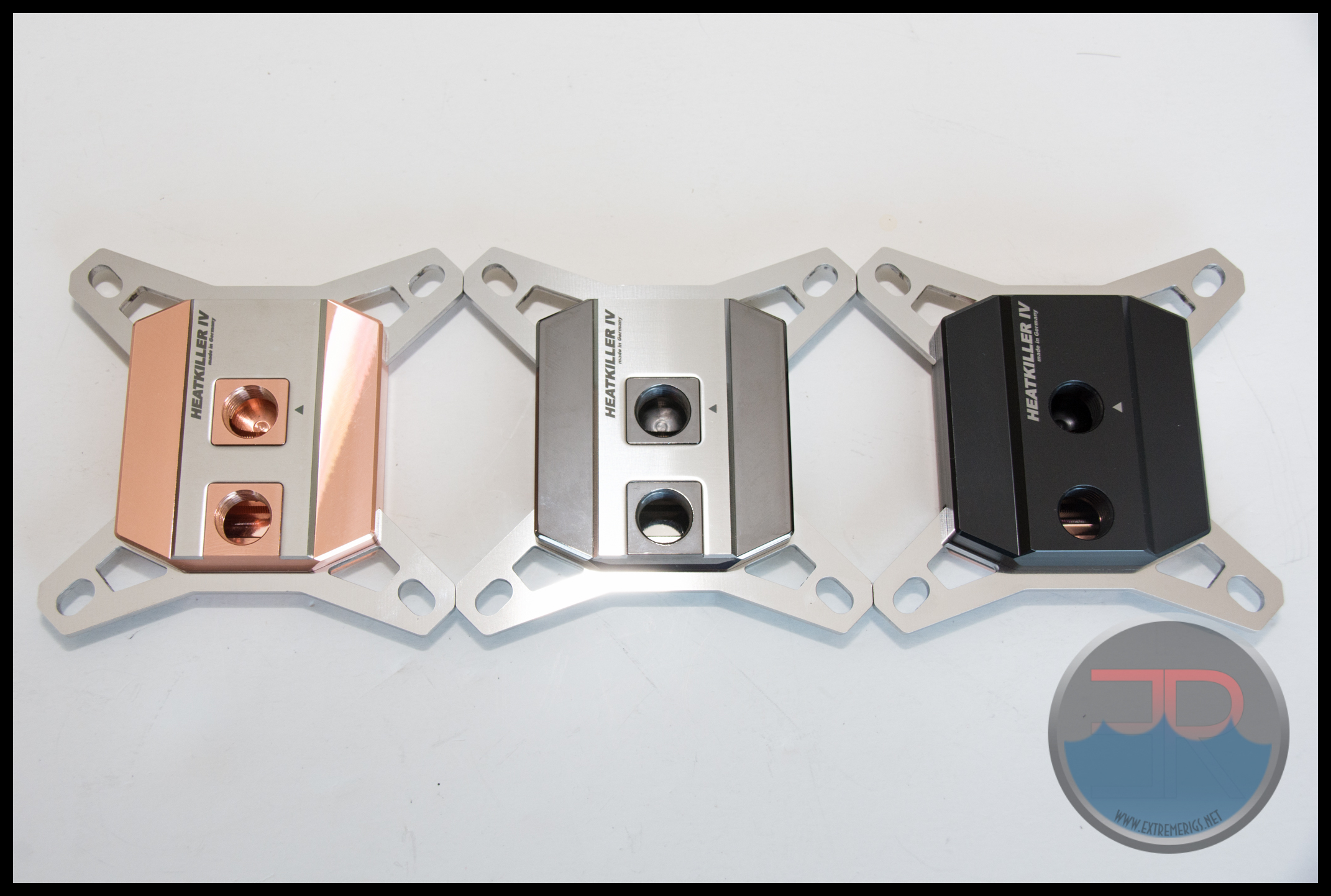 The Basic edition with it’s plain acetal top looked the cheapest, and it’s light weight reinforced this notion:
The Basic edition with it’s plain acetal top looked the cheapest, and it’s light weight reinforced this notion:
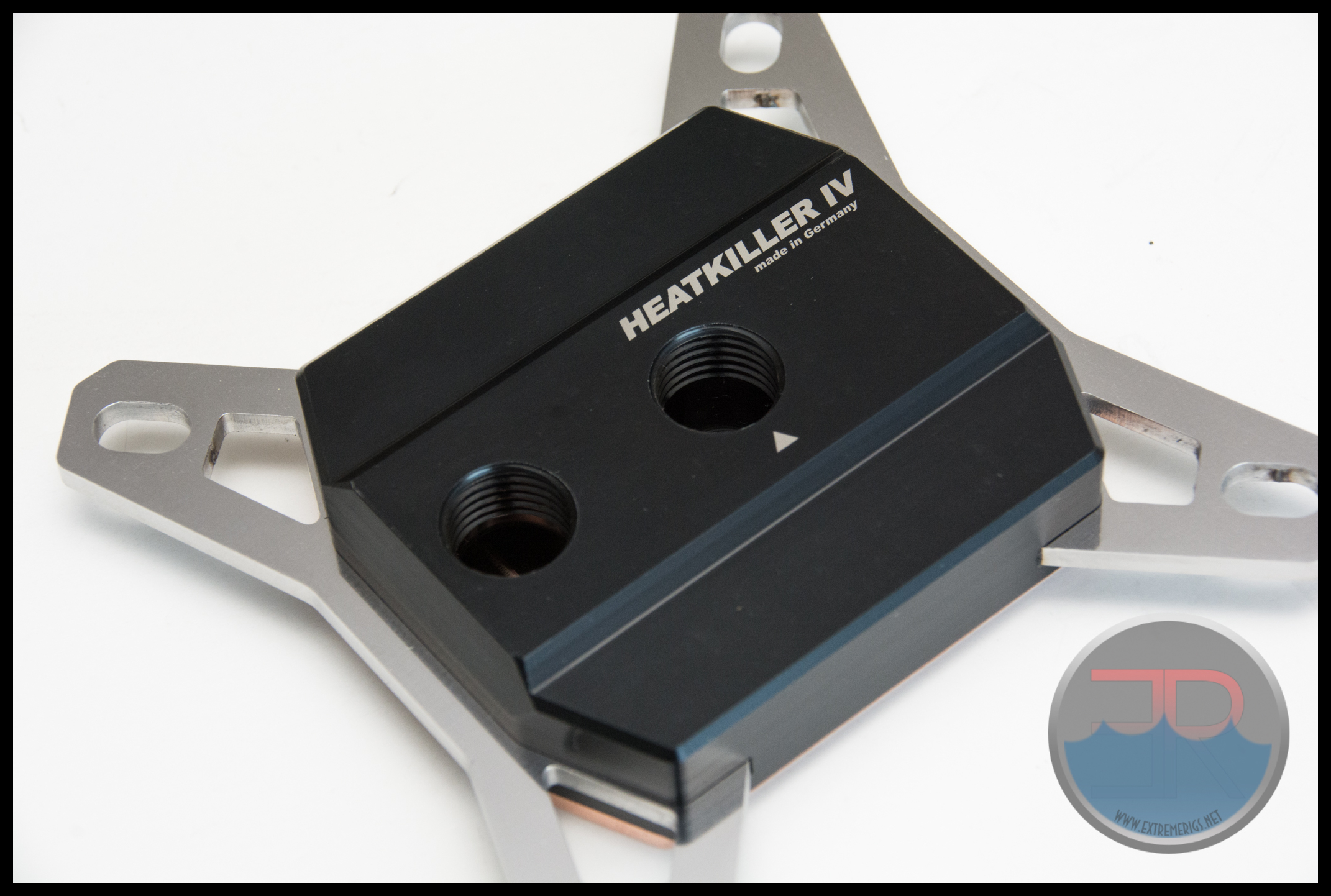 This is not to say it feels cheap though because it is far from that. However the Pro editions just really feel very high quality indeed:
This is not to say it feels cheap though because it is far from that. However the Pro editions just really feel very high quality indeed:
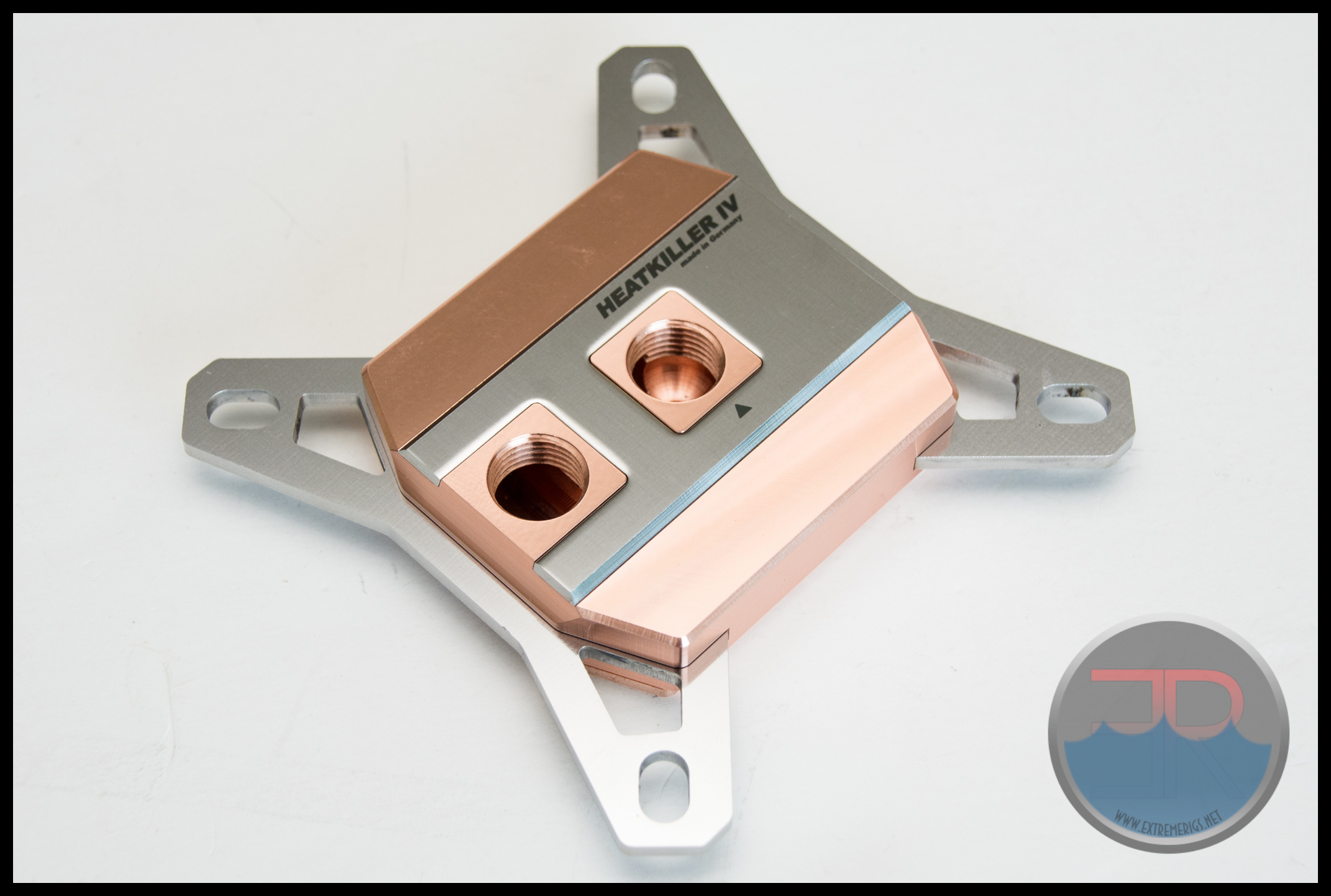 While the Pure Copper has a copper top and base the Copper Anthracite has a nickel plated base which we will see better when we take it apart:
While the Pure Copper has a copper top and base the Copper Anthracite has a nickel plated base which we will see better when we take it apart:
Just for reference – the Heatkiller III alongside:
So overall great looking and solid blocks with a sturdy looking mount. Let’s poke around at the insides next!





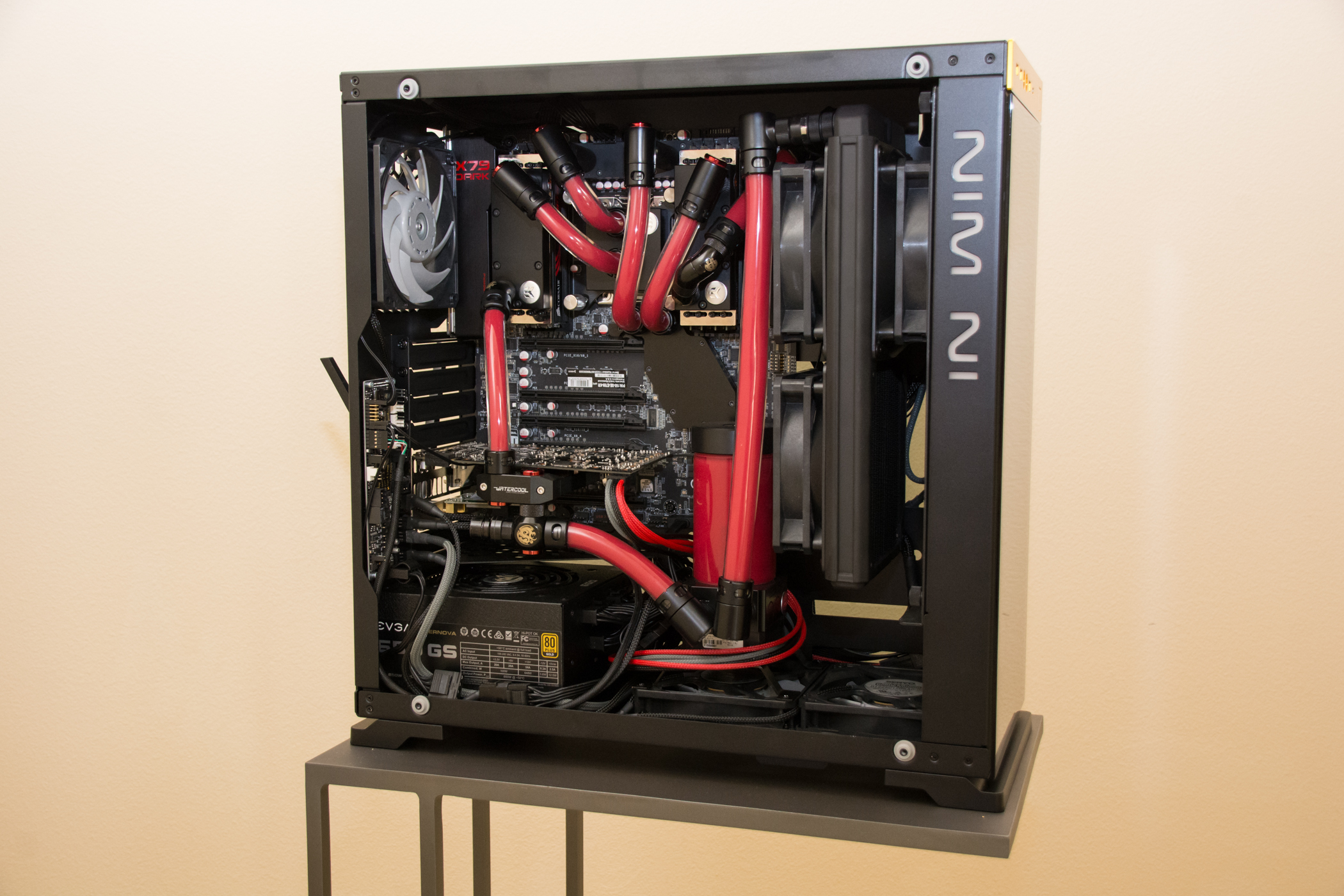
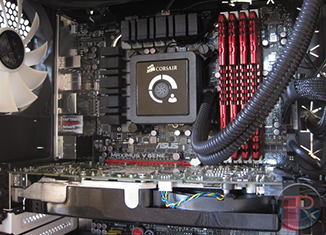

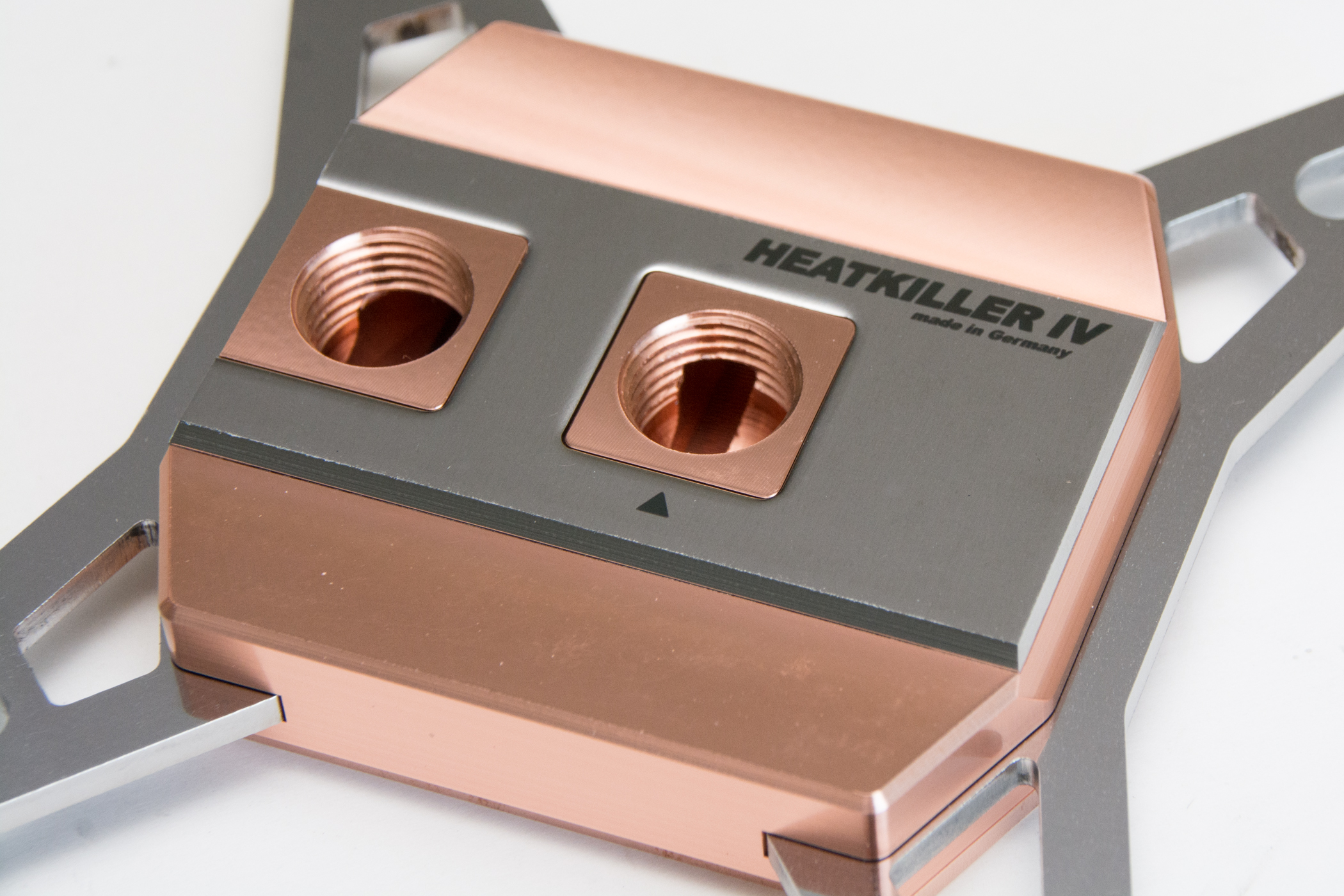
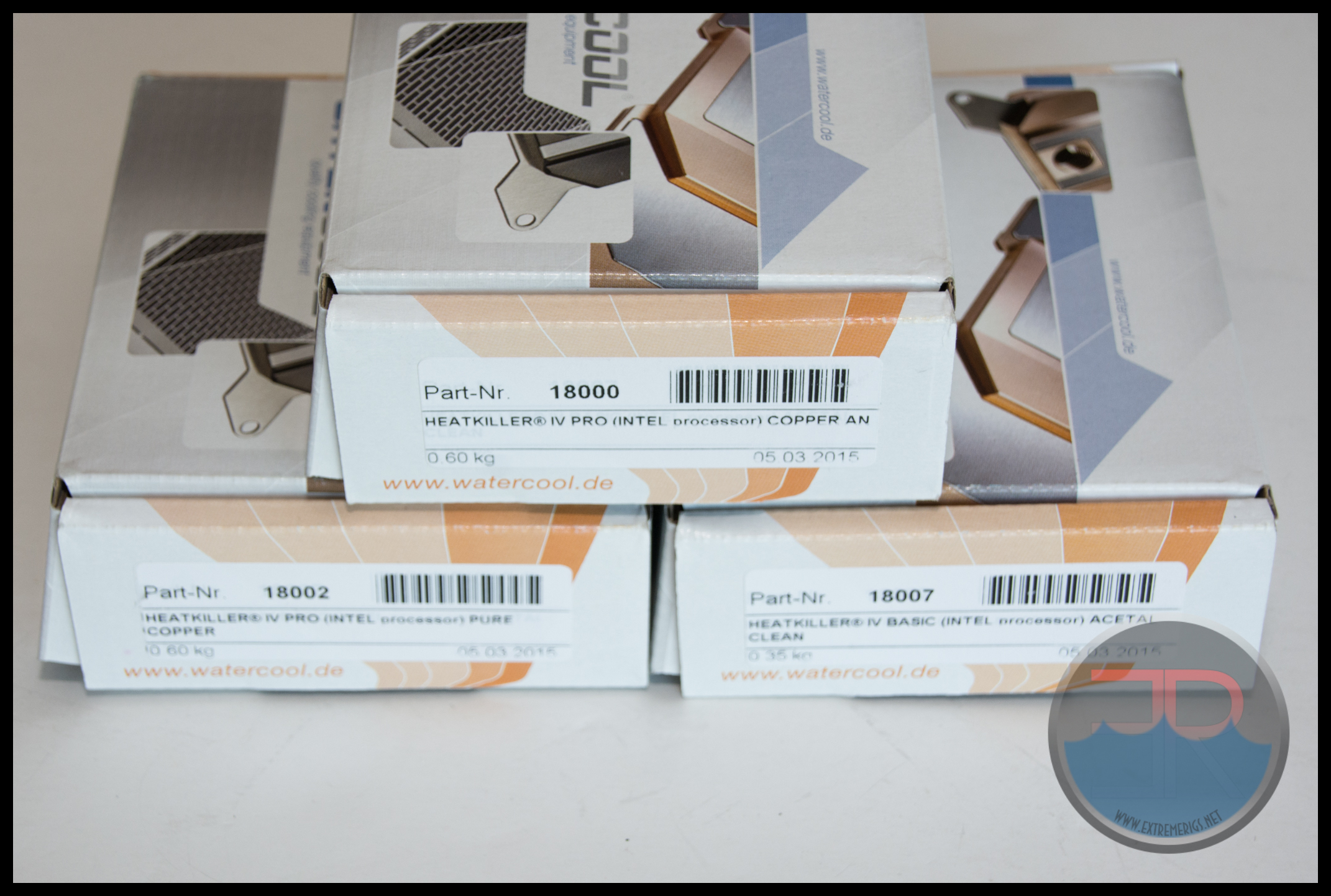
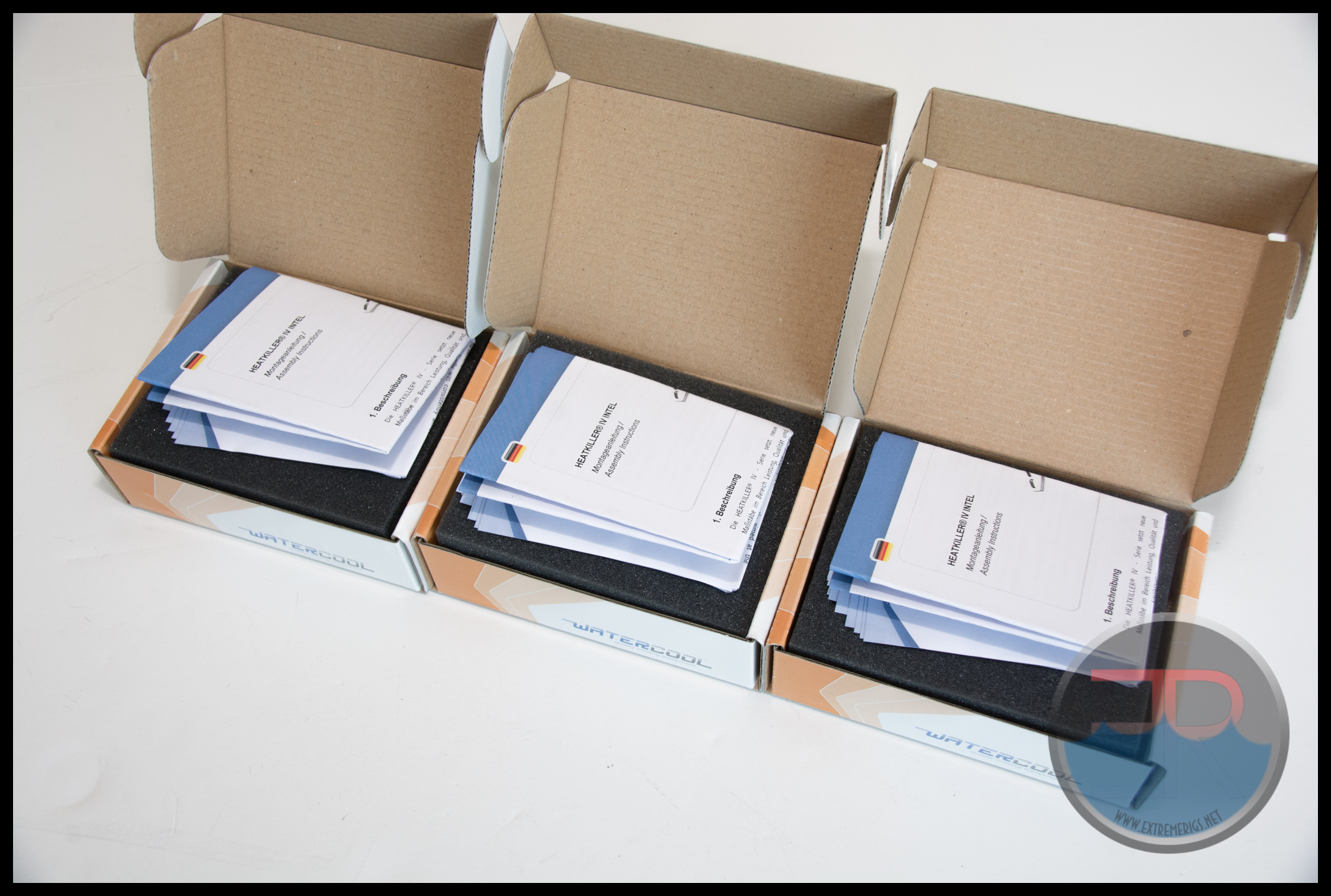
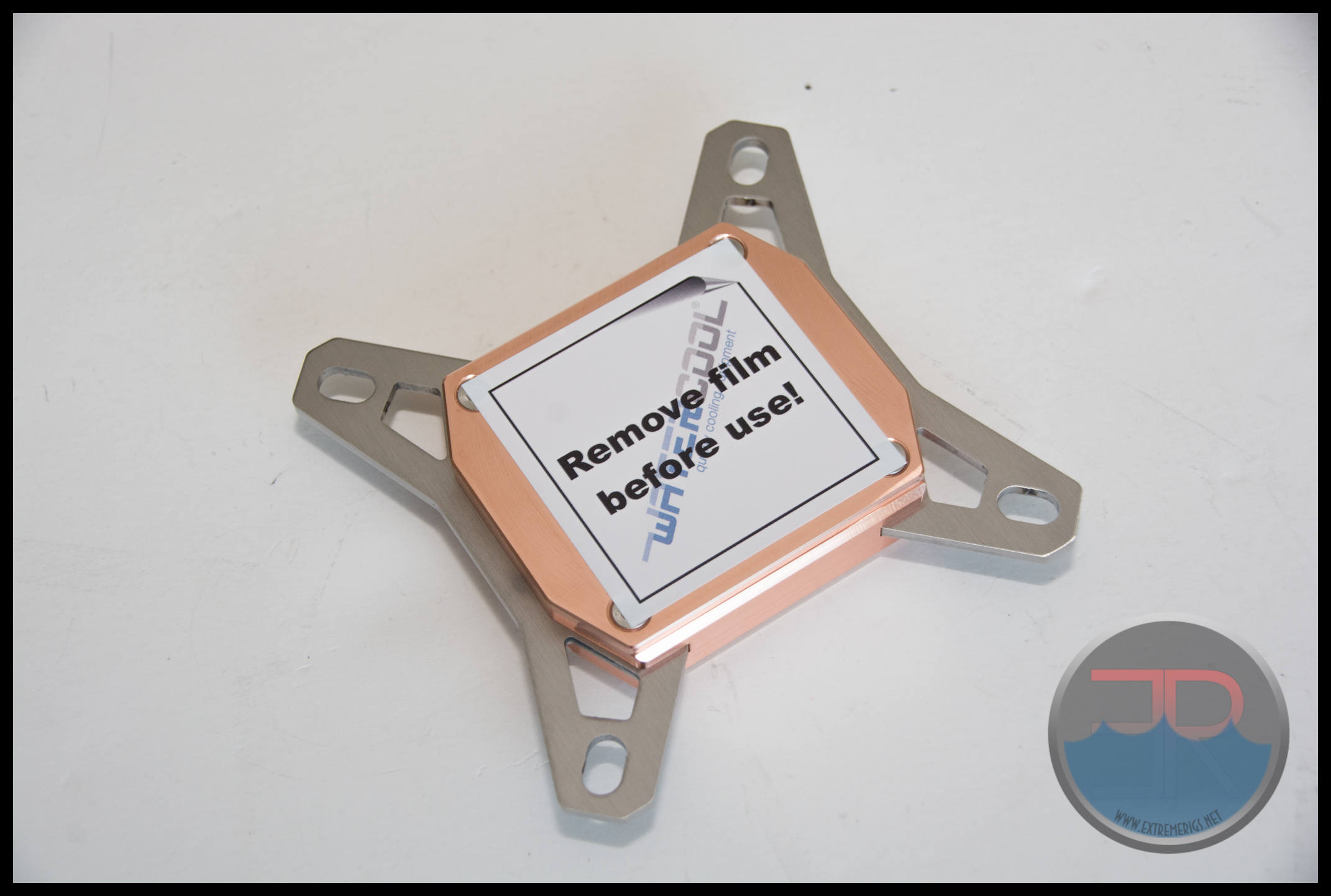
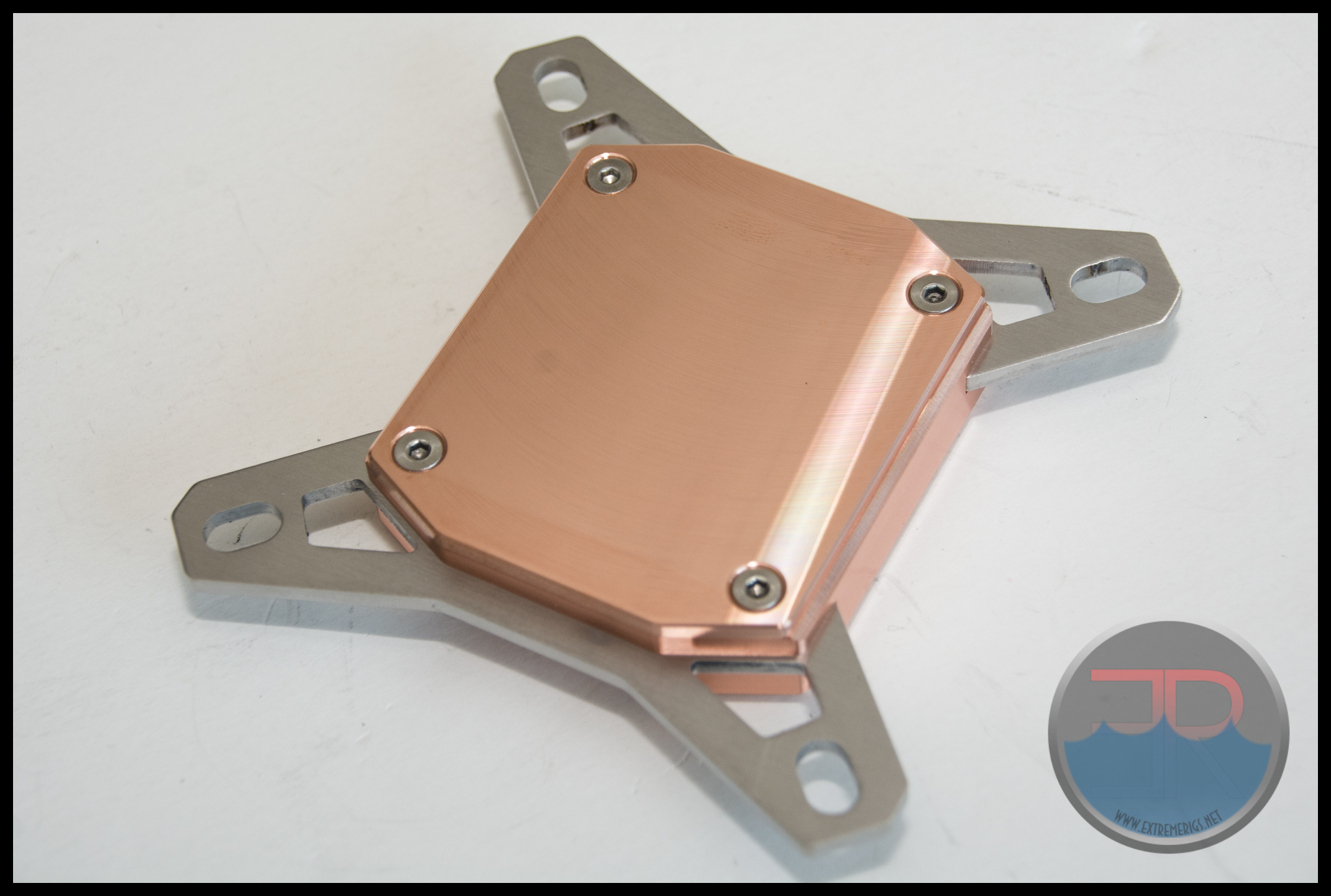
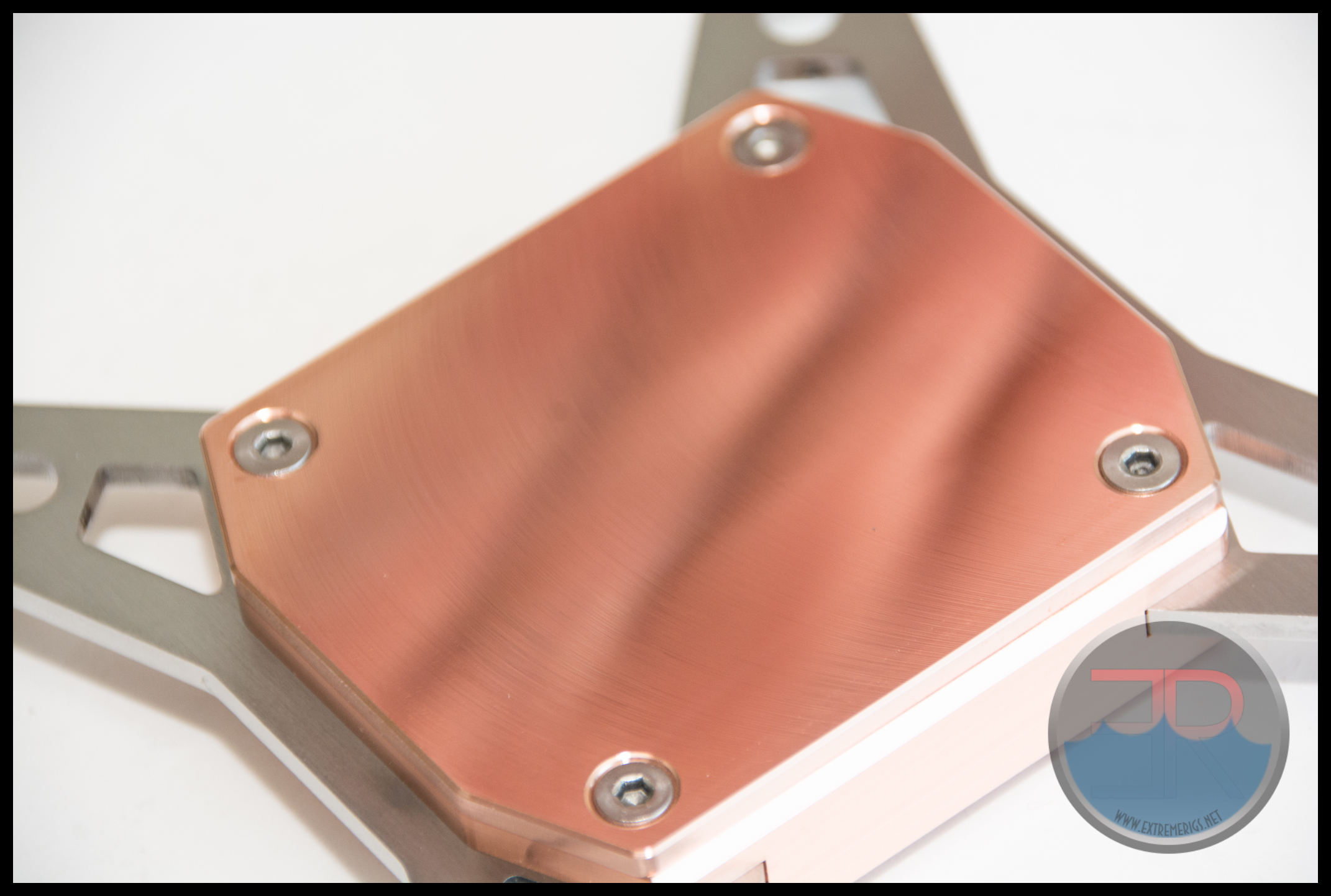
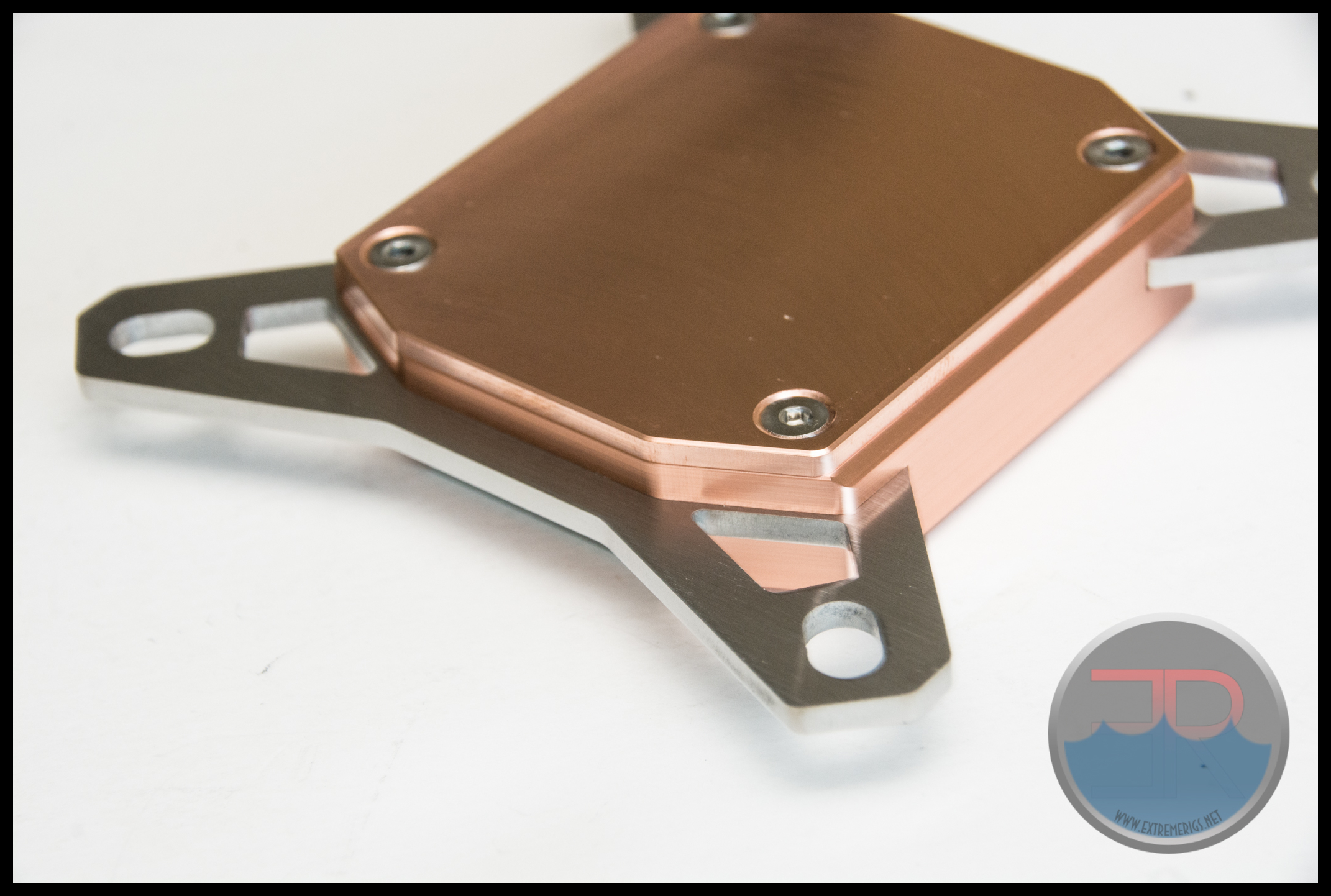
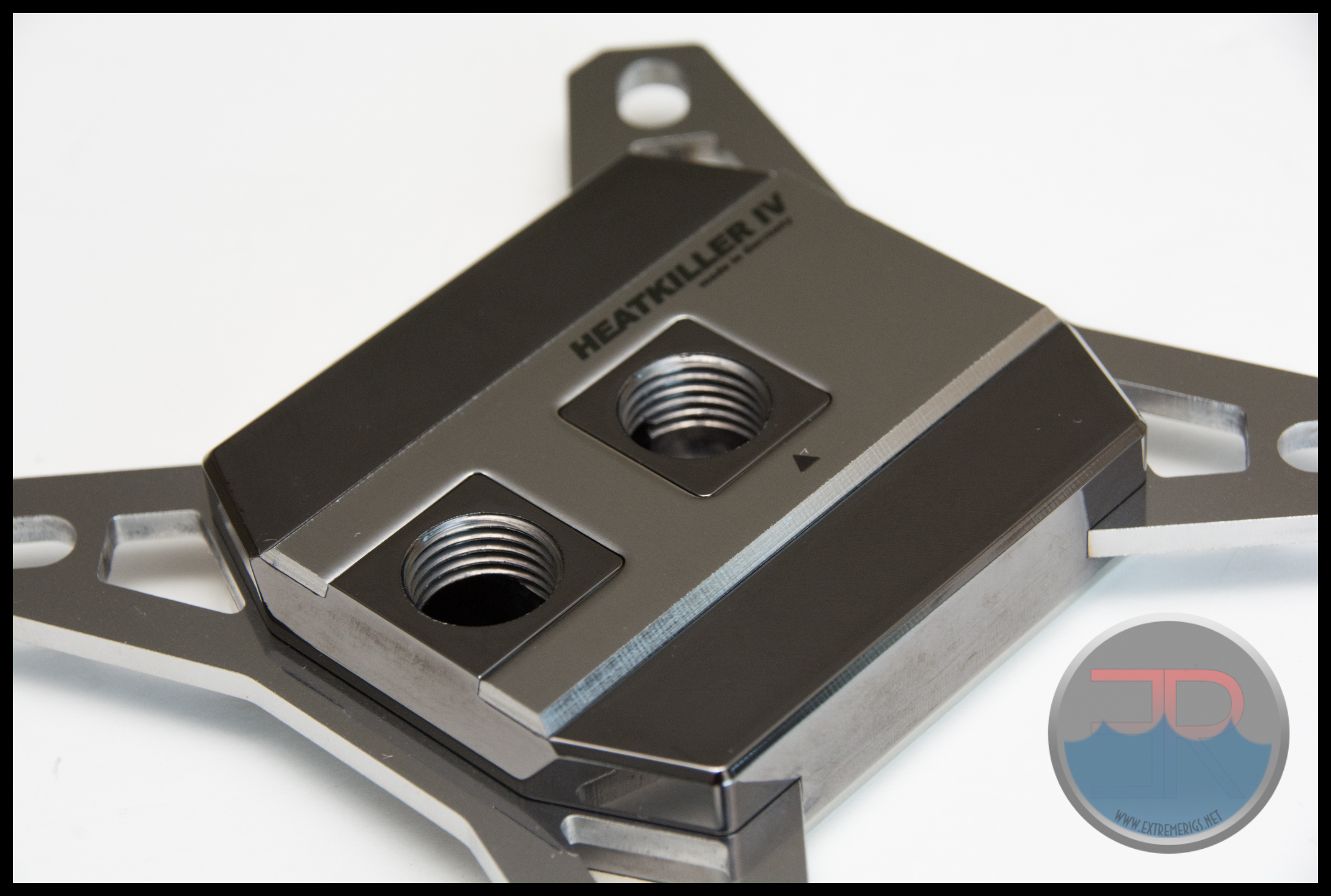
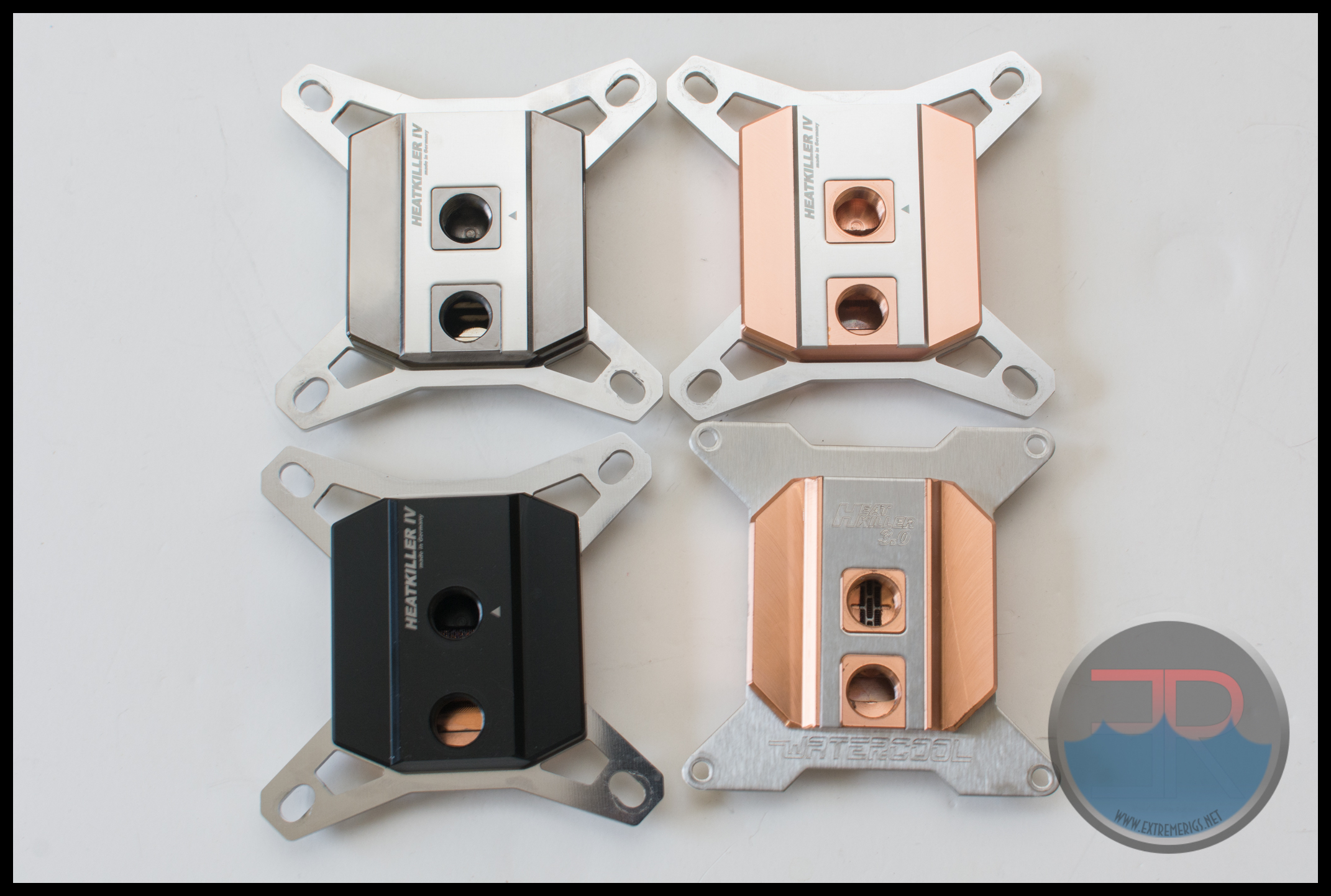

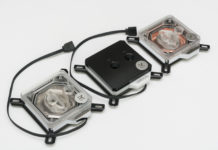
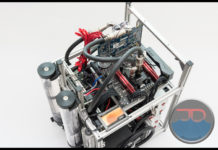
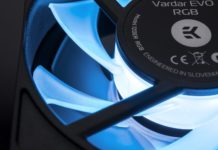

Greetings from Germany!
Awesome review, thorough as usual and very much appreciated.
While it may be impractical to add another block to the restriction graph, a graph with select blocks would be nice.
i remember a tweaked/moded HK3 on skinnees (http://skinneelabs.com/heatkiller-3-0-lt-lc/2/) for those with a HK3 it might be interesting to see how it compares. Vapor had an improvement of 1.3 deg C which would in theory even beat the HK4.
all the best
DX2
p.s. i had a question about your testing, i sent an email.
greetings from Germany!
Awesome review, thorough as usual.
A restriction graph of the HK4 as a link or compared to a select few would be nice.
i remember on skinnees, Vapor reviewed the HK3 LT. He tweaked/modded it getting 1.3 DegC improvement. It would be really interesting to see if the tweak delivers, assuming it does, it would even beat the HK4 :-O
all the best keep the reviews coming!
i had a question about your testing. i sent a email. ^_^
greetings from Germany!
Awesome review, thorough as usual. Keep up the good work!
A restriction graph ith a select set of blocks would still be nice tbh.
The HK3 LT review from skinnee included a modded HK3. It was 1.8 Deg better than unmodded if those result hold true the modded hzk3 might best the HK4. It would be awesome if you tried the mod!!
many kind regards
DX2
p.s. i sent a question via email.
I’m curios about the price differences in these blocks. Was the universal back plate necessary at all? It adds ~12USD more to the overall price. Currently, this will make it ~100USD simply for the cpu waterblock. Just curios to know if they’re any help, or if they’re required.
Honestly I haven’t tried it, and of course its only needed for socket 115x, but I would be reluctant to not use it. CPU blocks can mount with a fair bit of pressure, and I’d want to avoid bending the board.
One thing I can add after learning from experience. The HK3 water block works real well. Then the plasticizer from the flexible tubing clogs it. This happens anywhere from 6 to 9 month intervals with a OC’d AMD FX 9590 and 2 OC’d R9 285s. After the 2nd cleaning you notice the fine cuts in base are filled with crud. I found the best cleaner is tooth paste mixed with vinegar. The real problem is finding a brush with bristles fine enough go in between the ridges and stiff enough to remove it without scratching or bending them. So if you are not using rigid tubing, the HK basic maybe be better when it comes to cleaning. It is best not reuse the old tubing (leaks). Have not done a ridged reinstall, yet,,, but I believe careful disassembly and attention to orientation can be done without heating and bending new tubes. It is possible that the heat from the 9590 is more concentrated than the heat from the 285s because I did not notice as much crud in them?
Comments are closed.